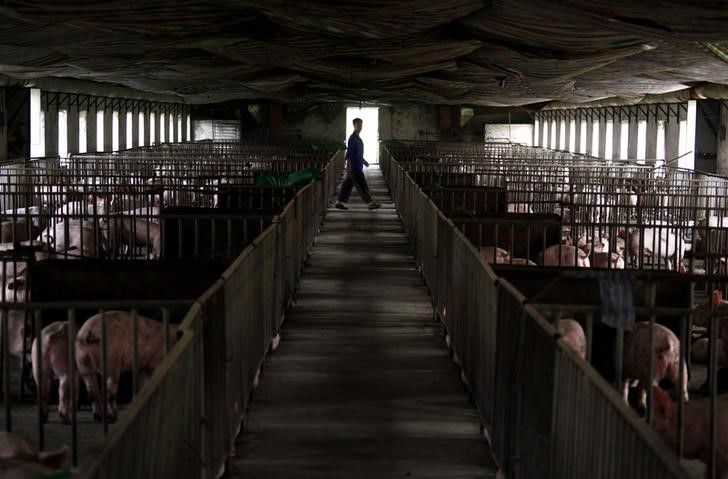U.S. Supreme Court will hear challenges to California’s animal caging bill – Prop 12

The U.S. Supreme Court on Monday agreed to hear a challenge by two national farming groups to California’s Proposition 12, a Health & Safety Code amendment that bans the sale of pork, eggs, and veal if the animals were bred in conditions that don’t meet the state’s minimum space requirements
The state’s voters overwhelmingly approved the change in 2018, but the National Pork Producers Council (NPPC) and the American Farm Bureau Federation (AFBF) say it is an unconstitutional state regulation of out-of-state farmers.
The groups focused primarily on pig farmers, saying the costs would fall almost exclusively on out-of-state producers since California has only about 0.2 percent of the nation’s breeding sows but consumes 13 percent of the nation’s pork through interconnected national markets.
The 9th U.S. Circuit Court of Appeals rejected their arguments last July, saying the law regulated only in-state activity and that increased costs on farmers elsewhere were “not impermissible.”
Like a California law banning the sale of foie gras from birds that had been force-fed, which the 9th Circuit affirmed in 2019, Proposition 12 “merely precluded ‘a more profitable method of operation… rather than affecting the interstate flow of goods,” the 9th Circuit said.
In the farm groups’ certiorari petition, Timothy Bishop of Mayer Brown wrote that the 9th Circuit had “brushed aside” several Supreme Court decisions on the Constitution’s Commerce Clause, saying they held that “laws with significant extraterritorial effects violate our federalist scheme.”
The petition was supported by amicus briefs from 20 state governments, the Canadian Pork Council, 14 business or farm associations outside California, and the National Association of Manufacturers and Cattlemen’s Beef Association.
The California attorney general’s press office said in an email it was “disappointed” the court agreed to hear the case, but “we look forward to continuing to defend the constitutionality of Proposition 12.”
Rather than file amicus briefs for California, the Humane Society of the United States, the Animal Legal Defense Fund, and other anti-cruelty groups intervened as parties in the case. They were represented by Bruce Wagman of Riley Safer Holmes & Cancila and Jeffrey Lamken of MoloLamken.
Humane Society President and CEO Kitty Block said in an emailed statement Monday that she is “confident” the Supreme Court will uphold the law.
“The Court has repeatedly affirmed the states’ rights to enact laws protecting animals, public health and safety, and the pork industry should focus on eliminating cruel caging of animals rather than attacking popular, voter-passed animal cruelty laws,” Block said.
The law was scheduled to take full effect this year, but California is still finalizing the regulations to implement it. A state-court judge in Sacramento last month barred the state from enforcing the law for 180 days after the regulations are issued.
The case is National Pork Producers Council and American Farm Bureau Federation v. Karen Ross, Secretary, California Department of Food & Agriculture, Humane Society of the U.S., et al.












